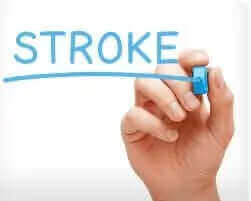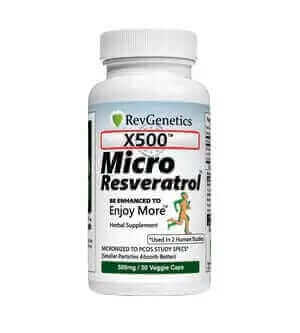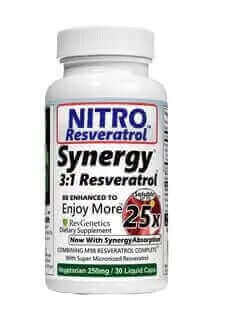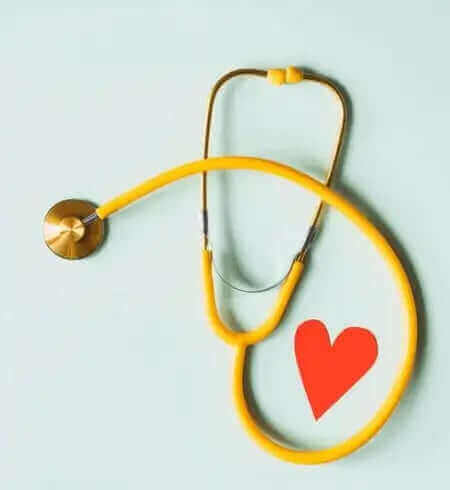Can Resveratrol Reduce Your Risk of Stroke? Breakthrough Research Reveals Protective Benefits
Revolutionary research presented at the Society for Neuroscience conference demonstrates that resveratrol significantly reduces stroke risk by protecting brain cells from damage. This comprehensive guide explores how this powerful compound works to prevent stroke, backed by scientific evidence and practical recommendations for incorporating resveratrol into your daily routine.
Understanding the Connection Between Resveratrol and Stroke Prevention
Recent groundbreaking research unveiled at the Society for Neuroscience conference in Atlanta has sparked excitement in the medical community. Scientists discovered that resveratrol, a natural compound found in red grapes and other foods, offers remarkable protection against stroke. This discovery opens new possibilities for millions seeking natural ways to safeguard their brain health and reduce stroke risk.
The study revealed that resveratrol works directly at the cellular level to shield brain tissue from the devastating effects of stroke. Researchers found that this compound not only protects against immediate stroke damage but also enhances overall brain function. These findings align perfectly with previous research showing resveratrol's ability to help the brain regulate blood sugar and manage stress, two critical factors in stroke prevention.
How Resveratrol Protects Your Brain from Stroke Damage
The protective mechanism of resveratrol against stroke involves a fascinating biological process. Scientists discovered that resveratrol significantly increases levels of heme oxygenase, a powerful enzyme that acts as your brain's natural defense system. This enzyme works tirelessly to protect brain cells from oxidative damage, which plays a crucial role in stroke development and progression.
When stroke occurs, brain cells face an onslaught of free radicals that can cause irreversible damage. Resveratrol activates your body's natural protective pathways, creating a shield around brain cells. This protective action dramatically reduces the risk of stroke and minimizes damage if a stroke does occur. The research shows that regular resveratrol consumption builds up these protective mechanisms over time, creating lasting benefits for brain health.
The Science Behind Resveratrol's Stroke-Fighting Properties
Laboratory studies provide compelling evidence of resveratrol's effectiveness in stroke prevention. Researchers conducted controlled experiments where mice received moderate doses of resveratrol before experiencing induced stroke-like brain damage. The results were extraordinary: mice pretreated with resveratrol showed 40% less brain damage compared to those on a regular diet.
This dramatic reduction in stroke damage demonstrates resveratrol's potential as a preventive measure. The compound works by:
- Activating protective enzyme systems in brain cells
- Reducing inflammation that contributes to stroke risk
- Improving blood flow and vascular health
- Neutralizing harmful free radicals before they damage brain tissue
- Supporting healthy blood pressure levels
- Enhancing the brain's natural repair mechanisms
Natural Sources of Resveratrol for Stroke Prevention
Nature provides several delicious sources of resveratrol that can help protect against stroke. Red grapes stand out as the richest natural source, particularly in their skin and seeds. Enjoying a handful of red grapes daily or savoring a glass of red wine (in moderation) can contribute to your resveratrol intake.
Other natural sources include:
- Peanuts and peanut butter - Convenient and protein-rich sources
- Dark chocolate - Choose varieties with at least 70% cocoa content
- Blueberries - Packed with additional antioxidants
- Cranberries - Fresh or dried varieties contain resveratrol
- Pistachios - A heart-healthy snack option
While these foods provide valuable amounts of resveratrol, achieving therapeutic doses through diet alone can be challenging. Research studies often use concentrated amounts equivalent to consuming 20 kilograms of peanuts daily, which clearly isn't practical for most people.
Optimizing Resveratrol Absorption for Maximum Stroke Protection
The key to harnessing resveratrol's stroke-preventing benefits lies in proper absorption. Most scientific studies use micronized resveratrol dissolved in ethanol to dramatically increase bioavailability. This process breaks down resveratrol particles into microscopic sizes, allowing your body to absorb and utilize them more effectively.
To maximize absorption naturally:
- Take resveratrol with a meal containing healthy fats
- Combine with black pepper or piperine to enhance absorption
- Choose micronized formulations when using supplements
- Maintain consistent daily intake for cumulative benefits
- Time your intake with your largest meal of the day
Supplementation: A Practical Approach to Stroke Prevention
For those seeking therapeutic doses of resveratrol to reduce stroke risk, high-quality supplements offer a practical solution. Micronized resveratrol capsules provide precise dosing, superior absorption, and convenient daily use. These supplements ensure you receive consistent, therapeutic amounts of resveratrol without consuming impractical quantities of food.
When selecting resveratrol supplements for stroke prevention, look for:
- Micronized formulations for enhanced absorption
- Third-party testing for purity and potency
- Standardized doses matching research protocols
- Products free from unnecessary fillers or additives
- Reputable manufacturers with quality certifications
Beyond Stroke Prevention: Additional Benefits of Resveratrol
While stroke prevention remains a primary benefit, resveratrol offers a wealth of additional health advantages. The general benefits of resveratrol extend throughout your entire body, supporting overall wellness and vitality.
Research demonstrates resveratrol's ability to:
- Support cardiovascular health - Protecting blood vessels and improving circulation
- Enhance longevity - Activating genes associated with healthy aging
- Boost energy levels - Supporting cellular energy production
- Reduce inflammation - Addressing a root cause of many chronic diseases
- Support immune function - Helping your body fight infections naturally
- Improve metabolic health - Supporting healthy blood sugar levels
Emerging Research on Resveratrol's Therapeutic Potential
Exciting new research continues to uncover resveratrol's therapeutic applications beyond stroke prevention. Studies show promising results for treating menopausal symptoms without the side effects of hormone replacement therapy. Women experiencing hot flashes, mood changes, and other menopausal challenges may find relief through resveratrol supplementation.
Additional research highlights include:
- Reducing influenza virus effectiveness
- Making HIV more sensitive to antiviral drugs
- Enhancing pancreatic cancer cells' vulnerability to chemotherapy
- Supporting healthy brain aging and cognitive function
- Protecting against neurodegenerative diseases
Creating Your Personal Stroke Prevention Plan with Resveratrol
Developing an effective stroke prevention strategy involves more than just taking supplements. Combine resveratrol with lifestyle modifications for maximum protection against stroke. Start by establishing a daily resveratrol routine that fits your lifestyle and preferences.
Your comprehensive stroke prevention plan should include:
- Daily resveratrol intake - Through food sources and/or supplements
- Regular exercise - At least 30 minutes of moderate activity daily
- Healthy diet - Rich in fruits, vegetables, and whole grains
- Stress management - Practice relaxation techniques regularly
- Regular health monitoring - Track blood pressure and cholesterol levels
- Adequate sleep - Aim for 7-9 hours nightly
- Hydration - Drink plenty of water throughout the day
Success Stories: Real People Reducing Stroke Risk
Countless individuals have discovered the life-changing benefits of incorporating resveratrol into their stroke prevention routines. Many report feeling more energetic, mentally sharp, and confident about their future health. These success stories inspire others to take proactive steps toward protecting their brain health.
Common experiences include:
- Improved mental clarity and focus
- Better cardiovascular health markers
- Increased energy throughout the day
- Greater peace of mind about stroke risk
- Overall improved quality of life
Safety Considerations and Optimal Dosing for Stroke Prevention
While resveratrol demonstrates excellent safety in research studies, understanding proper dosing ensures optimal benefits for stroke prevention. Most studies showing protective effects against stroke use doses ranging from 150-500mg daily. Starting with lower doses and gradually increasing allows your body to adjust comfortably.
Important safety considerations include:
- Consult healthcare providers before starting any new supplement regimen
- Monitor for any unusual reactions when beginning supplementation
- Consider potential interactions with blood-thinning medications
- Choose quality products from reputable manufacturers
- Maintain consistent daily dosing for best results
The Future of Stroke Prevention: Resveratrol's Growing Role
As research continues to unveil resveratrol's protective mechanisms against stroke, its role in preventive medicine grows increasingly important. Scientists explore new delivery methods, optimal dosing protocols, and combination therapies that may enhance resveratrol's stroke-preventing properties even further.
Emerging areas of research include:
- Targeted delivery systems for enhanced brain penetration
- Combination therapies with other natural compounds
- Personalized dosing based on genetic factors
- Long-term population studies on stroke incidence
- Development of even more bioavailable formulations
The future looks bright for those seeking natural, effective ways to reduce stroke risk. Resveratrol stands at the forefront of this revolution, offering hope and protection to millions worldwide.
Taking Action: Your Next Steps Toward Stroke Prevention
Knowledge without action yields no benefits. Now that you understand resveratrol's powerful protection against stroke, take decisive steps to incorporate this compound into your daily routine. Whether through dietary changes, supplementation, or both, every action you take today protects your brain tomorrow.
Start your stroke prevention journey by:
- Evaluating your current stroke risk factors
- Discussing resveratrol supplementation with your healthcare provider
- Choosing high-quality resveratrol products or increasing dietary sources
- Establishing a consistent daily routine
- Tracking your progress and how you feel
- Sharing your success with others who may benefit
Remember, preventing stroke isn't just about avoiding a medical crisis. It's about preserving your independence, protecting your cognitive abilities, and ensuring you can enjoy all the moments life offers. Resveratrol provides a scientifically proven tool to help achieve these goals.
Frequently Asked Questions About Resveratrol and Stroke Prevention
How quickly does resveratrol start protecting against stroke?
While some protective effects begin immediately, research shows that consistent daily intake over several weeks builds optimal protection against stroke. The enzyme systems activated by resveratrol need time to reach peak effectiveness. Most people notice improvements in energy and mental clarity within 2-4 weeks, with maximum stroke protection developing over 2-3 months of regular use.
Can I get enough resveratrol from food alone to prevent stroke?
While dietary sources provide valuable resveratrol, achieving therapeutic doses for stroke prevention through food alone proves challenging. Research studies typically use doses equivalent to consuming 20 kilograms of peanuts or dozens of bottles of red wine daily. For practical stroke prevention, combining dietary sources with high-quality supplements offers the most effective approach.
Is resveratrol safe to take with blood pressure medications?
Resveratrol generally demonstrates excellent safety, but it may enhance the effects of certain medications. Since resveratrol can improve cardiovascular health and blood flow, consulting your healthcare provider before combining it with blood pressure medications ensures safe, effective use. Many people successfully use both under medical supervision for enhanced stroke protection.
What makes micronized resveratrol better for stroke prevention?
Micronization breaks resveratrol into tiny particles that your body absorbs much more efficiently. This process can increase bioavailability by up to 500%, meaning more resveratrol reaches your brain to provide stroke protection. Standard resveratrol has poor absorption, with much of it passing through your system unused. Micronized formulations ensure you receive the full protective benefits.
Can resveratrol help recovery after a stroke has occurred?
While resveratrol shows most promise in stroke prevention, emerging research suggests it may also support recovery after stroke. Its neuroprotective properties, ability to reduce inflammation, and support for brain cell repair make it a valuable tool in comprehensive stroke recovery programs. Always work with your medical team to incorporate resveratrol safely into post-stroke care.
How does resveratrol compare to prescription medications for stroke prevention?
Resveratrol works through different mechanisms than most prescription stroke medications, offering complementary protection. While medications often target specific risk factors like blood clotting or blood pressure, resveratrol provides broad cellular protection and supports overall brain health. Many people find combining resveratrol with prescribed treatments under medical supervision provides optimal stroke prevention.
What time of day should I take resveratrol for best stroke protection?
Taking resveratrol with your largest meal optimizes absorption and stroke protection benefits. Many people prefer taking it with dinner, as the presence of dietary fats enhances absorption. Consistency matters more than specific timing, so choose a time you can maintain daily. Some research suggests evening doses may align better with your body's natural repair processes.
Are there any side effects of taking resveratrol for stroke prevention?
Resveratrol typically causes few side effects when taken at recommended doses. Some people initially experience mild digestive changes or increased energy that may affect sleep if taken late in the day. These effects usually resolve as your body adjusts. Starting with lower doses and gradually increasing helps minimize any adjustment period while building stroke protection.
Can young adults benefit from taking resveratrol to prevent future strokes?
Starting stroke prevention early provides tremendous long-term benefits. Young adults who begin taking resveratrol build stronger cellular defenses against future stroke risk. Since stroke risk factors often develop over decades, early prevention proves especially valuable. Resveratrol's additional benefits for energy, longevity, and overall health make it an excellent choice for proactive young adults.
How do I know if resveratrol is working to prevent stroke?
While stroke prevention isn't directly measurable day-to-day, many positive signs indicate resveratrol's protective effects. Look for improved energy levels, better mental clarity, enhanced cardiovascular health markers during checkups, and an overall sense of vitality. Regular health screenings showing stable or improving blood pressure, cholesterol, and inflammatory markers confirm resveratrol's protective benefits.
References:






